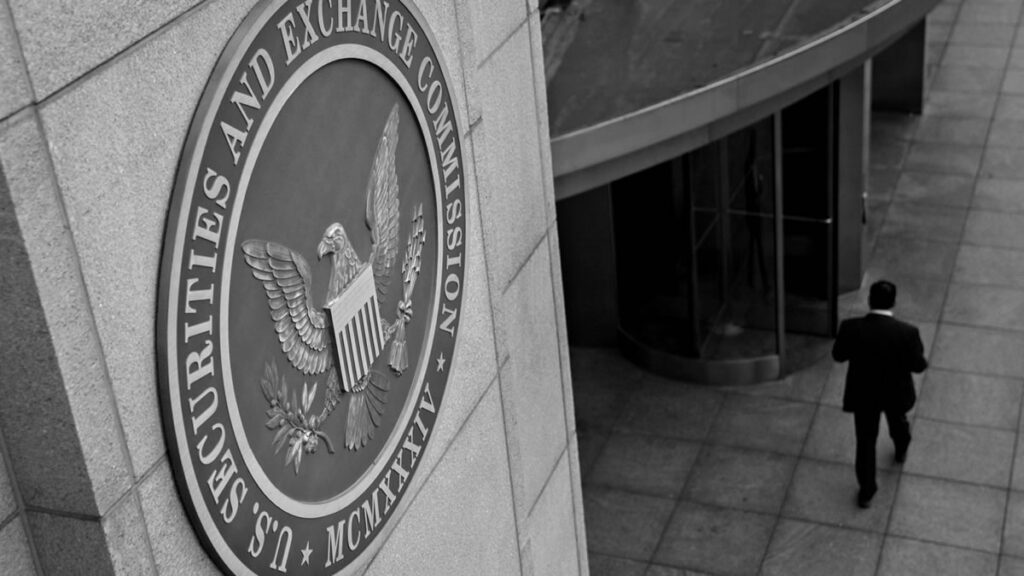Hello everyone, I’m Emily Carter, a financial analyst and writer, and I’m here to explain a major development in the world of finance that should grab your attention. In a decision that has certainly made headlines, Morgan Stanley agreed to pay a hefty sum – $125 million, in fact – to the Securities and Exchange Commission (SEC), and another $75 million to the Commodity Futures Trading Commission (CFTC). The reason? Well, it turns out that some of Morgan Stanley’s business communications occurred on messaging platforms not approved by the firm, which is a regulatory no-no. Read the SEC’s announcement for the full story.
Now, Morgan Stanley is by no means the only financial giant caught in this snare; several others are also under scrutiny. It’s a stark reminder of the importance of following the rules, especially in an industry where trust is paramount. For example, Bank of America has also earmarked a similar figure for potential settlements related to the use of personal devices for work purposes, which isn’t allowed. Let’s not forget Citigroup, either. Their CFO, Mark Mason, has already mentioned setting aside reserves in anticipation of the fallout from this ongoing investigation.
And across the pond, UBS has also caught the attention of both the CFTC and SEC, actively cooperating with the authorities. It’s quite the international affair, showing that when it comes to regulatory compliance, no one is immune to oversight—not even the biggest names in finance.
How the SEC Protects Investors
As a watchdog for Wall Street, the SEC plays a critical role. In the wake of the infamous 1929 market crash, the SEC emerged to protect investors from deceptive practices and to maintain fair, orderly, and efficient markets. As the American financier J.P. Morgan once said, “A man always has two reasons for doing anything: a good reason and the real reason.” The SEC is all about unveiling that ‘real reason’ to ensure investors have the information they need.
 (AD) Lost money because of bad financial advice or outright fraud? You may get it back by filing a complaint. Haselkorn & Thibaut has 50+ years of experience and a 98% success rate. Don’t delay if you’ve suffered losses. (AD) Lost money because of bad financial advice or outright fraud? You may get it back by filing a complaint. Haselkorn & Thibaut has 50+ years of experience and a 98% success rate. Don’t delay if you’ve suffered losses. Call Haselkorn & Thibaut at 1-888-784-3315 for a free consultation, or visit InvestmentFraudLawyers.com to schedule. No Recovery, No Fee. |
EDGAR
Speaking of information, let’s talk about the EDGAR database. It’s like a treasure trove of corporate financial data spanning over two decades. While access isn’t free, it provides invaluable insights into public companies, mutual funds, and more. Think of it as a way to do your homework on a company’s financial health before you dive into investing.
Conceived in 1984, EDGAR brought filing into the digital age, replacing antiquated paper submissions. Today, it’s a major hub, with thousands of companies and tens of thousands of filings flowing daily. So whether you’re at home or at a coffee shop, as long as you have internet, you can access EDGAR and its wealth of information at your fingertips.
Sarbanes-Oxley Act
The Sarbanes-Oxley Act, or SOX as it’s commonly known, was a direct response to mind-boggling scandals like those involving Enron and WorldCom. Established in 2002, SOX’s mission is twofold: make companies more transparent, and keep their management honest.
SOX might be a bit of a headache for companies due to its stringent compliance requirements, but for investors, it is a beacon of hope. It insists that senior management sign off on financial statements, punishes financial misdeeds harshly, and maintains auditor independence—all in the name of protecting you and your investments.
Regulation SCI
With the digital invasion into the markets, Regulation SCI addresses a very modern fear: the rogue algorithm that could potentially wipe billions off the market. To prevent that doomsday scenario, it mandates standards and testing to ensure systems deployed by significant market players are robust and secure.
It’s all about preparedness and prevention. Regular reporting, strict adherence to rules, and comprehensive business continuity plans are not just good practice—they’re required to instill confidence in the integrity of our markets.
No-Action Letters
Giving companies some breathing room, a no-action letter from the SEC basically says, “Go ahead with your proposed action; we won’t enforce action against you.” It’s an effective way for the SEC to exercise flexibility and adapt to evolving business practices.
But heads up: the trend here is that the SEC is taking a friendlier stance towards businesses under its current leadership. However, let’s remember that the core principle of the SEC is to protect investors, and it has to balance that mandate with supporting business innovation—a challenging tightrope to walk.
Now, let me leave you with a thought—something that’s been on my mind as I’ve seen these developments unfold. A good financial advisor can be one of your greatest assets; however, “an ounce of prevention is worth a pound of cure,” as Benjamin Franklin wisely noted. And a financial fact that speaks volumes: bad financial advisors have cost Americans about $17 billion a year according to a White House report. What does that mean for you? Always ensure you’re dealing with a credible advisor by checking their FINRA CRM number.
In conclusion, the financial industry is a tricky one to navigate, and staying informed is your best defense. Whether it’s a corporate behemoth paying out for mishandled communications or the complex web of SEC regulations, understanding how these pieces move gives you an edge as an investor, and I’m here to help shed light on that. Till next time, make sure your financial decisions are well-informed and your investments secured. I’m Emily Carter, your ally in making sense of money matters.
Hello there! I’m Emily Carter, a seasoned financial analyst and writer who loves demystifying the often complex world of finance. Today, I’m going to walk you through some key points you should know about the intricacies of dealing with the SEC and understanding the whistleblower rewards program.
When it comes to correspondence with the SEC, particularly the no-action letters, you’ve got to tread lightly. These letters can give us a glimpse into the SEC’s current thinking, but don’t be fooled—these stances can shift without a moment’s notice. No-action letters can be revoked, and sometimes the Staff’s change in stance impacts shareholder proposals negatively.
It’s essential to remember that these changes can muddy the waters. Without clear procedures, companies might struggle to articulate their positions, leaving shareholder proponents to challenge these views without a clear resolution in sight.
Let me give you an example. A recent no-action letter to the SEC brought to light the potential risks tied to certain trading services that could sidestep competition. While the SEC acknowledged this, the letter was ambiguous, indicating that this nod of assurance from the SEC isn’t enough to stamp out such practices completely.
If you’re ever in the position to draft such a letter to the SEC, ensure it includes a copy of the request for interpretation and pertinent references to the relevant sections and rules. Also, don’t forget to provide a separate copy for the staff. It’s all in the details!
Whistleblower Rewards Program
Now, let’s switch gears to something quite empowering—the whistleblower rewards program. Did you know that whistleblowers can pocket up to 30 percent of the sanctions collected when they report securities violations? That’s right, if the SEC deems the information crucial and the whistleblower’s help instrumental in a successful action, a cut of the recovered sanctions could land in the whistleblower’s hands.
To qualify for a reward, the whistleblower’s intel must lead the SEC to a successful enforcement action, and the monetary sanctions must exceed $1 million. Typically, the SEC dishes out between 10 and 30 percent of the sanction to the whistleblower—a significant incentive to report wrongdoing.
Not just anyone can blow the whistle. You’ve got to be a voluntary informant, boasting original information derived from your independent knowledge or analysis. Plus, the data you drop must result in an SEC order commanding monetary sanctions above $1 million. While any individual can theoretically claim a reward, certain professionals like attorneys, corporate officers, and auditors also have a shot under specific circumstances.
Ponder this tidbit: the SEC has paid out over $1 billion in rewards to whistleblowers within the finance sector. Yet, there’s a concerning trend—the SEC sometimes leans on expensive law firms to filter tips, which could, in turn, dissuade potential whistleblowers from coming forward. Talk about sending mixed signals.
The Dodd-Frank Wall Street Reform and Consumer Protection Act brought this whistleblower rewards program into the spotlight, mirroring a similar initiative by the CFTC. Beyond just monetary gains, whistleblowers could find themselves entitled to restitution or disgorgement too.
Let’s not ignore the sage words of Warren Buffett: “Honesty is a very expensive gift. Don’t expect it from cheap people.” This holds especially true in the financial world. Speaking of honesty, here’s a financial fact for you: not all advisors put your best interests at heart. Some studies have shown that bad financial advisors can cost investors up to 3% in returns each year. And if you’re curious about an advisor’s track record, it’s wise to check their FINRA BrokerCheck [record](https://brokercheck.finra.org/)—it’s an essential step to ensure you’re entrusting your finances to the right person.
There you have it—your quick guide on SEC no-action letters and the whistleblower rewards program. Remember, whether you’re tackling the SEC or pondering whistleblowing, knowledge is your most valuable asset. Stay informed, stay vigilant, and as always, if venturing into the finance world feels overwhelming, I’m here to help make it a bit easier to navigate.




